SUMMARY
This is AI generated summarization, which may have errors. For context, always refer to the full article.
![[OPINION] United we stand. Divided is not an option.](https://www.rappler.com/tachyon/2021/01/united-up-january-22-2021.jpg)
Humayo’t itanghal, giting at tapang
Mabuhay ang Iskolar ng Bayan
– UP Naming Mahal
The campuses of the University of the Philippines are every UP student’s safe harbor. This does not mean that every Iskolar ng Bayan defies the rule of law. Rather, the UP campus offers a sacred ground upon which a UP student or a UP professor can freely express what he or she believes without fear of judgment or persecution. This is the very cornerstone upon which the 1989 Ramos-Abueva (1989 accord) was built on. The accord was built on an agreement reached during the Marcos years between the martial law administrator Defense Secretary Juan Ponce Enrile and Sonia Soto of the League of Filipino students.
The 1989 accord did not prevent the military or the police from entering the UP campuses. It only limited their right to do because of the recognition that UP is an autonomous institution, which upholds free thinking and discourse. The DND’s abrogation of this instrument is not only baseless, but also a complete disregard to the historical struggle of UP, PUP, and other students who fought for our democratic institutions during the Martial Law era. It is also legally irrelevant because the two principles it is based on are now enshrined in Philippine jurisprudence in the case of academic freedom and the amended UP Charter with regard to the autonomy of the national university.
Academic freedom is at stake
The DND had no right to unilaterally terminate the agreement, which has been upheld and respected for over 3 decades by past administrations. The 1989 accord did not provide for an exit clause. As such, both parties should agree to terminate this mutual pact. The DND further claimed that Section 8 of the 1989 accord allows it to implement the laws without any hindrance as long as it is within the prescribed procedures mandated by the law rendering the 1989 accord moot and academic.
With all due respect to the DND, the 1989 accord is based on UP’s academic freedom, enshrined not just in its Charter (Republic Act No. 9500) but also in the 1987 Philippine Constitution.
In DLSU v. CA, et al (GR No. 127980, December 19, 2007), the Supreme Court discussed that Section 5(2), Article XIV of the Constitution guarantees all institutions of higher learning academic freedom. This institutional academic freedom “includes the right of the school or college to decide for itself its aims and objectives, and how best to attain them free from outside coercion or interference save possibly when the overriding public interest calls for some restraint.”
In a 2019 decision, Pimentel vs Legal Education Board, the Court, in the majority opinion penned by Justice Jose Reyes, pointed out that apart from the academic freedom of teachers and students, the academic freedom of the institution itself is recognized and constitutionally guaranteed. It quoted Garcia v. The Faculty Admission Committee, Loyola School of Theology which elucidates how academic freedom is enjoyed by institutions of higher learning: “It decides for itself its aims and objectives and how best to attain them. It is free from outside coercion or interference save possibly when the overriding public welfare calls for some restraint. It has a wide sphere of autonomy certainly extending to the choice of students.”
Justice Leonen’s concurring and dissenting opinion in the Pimentel case argues strongly that academic freedom as a constitutional right should be interpreted with the understanding that this guarantee lies within the broader sphere of the Bill of Rights. He points out that academic freedom recognizes that “academic institutions perform a social function and its business is conducted for the common good; that is, it is a necessary tool for critical inquiry of truth and its free exposition.” Leonen continues: “The guarantee of academic freedom is complementary to freedom of expression and of the mind. Thus, to foster an environment of critical discussion and inquiry, the faculty must be given a degree of independence from their employers, and universities must have a degree of independence from the State. This constitutional protection guaranteed for the students, faculty, and institutions is not merely a job-related concern or an institutional interest; rather, it “promotes First Amendment values of general concern to all citizens [of] a democracy.”
These observations apply as well to the Ramos-Prudente accord which applies to the campuses of the Polytechnic University of the Philippines. PUP, indeed, all academic institutions, has the same right to academic freedom as UP and this cannot easily be disregarded.
No legal and factual basis for termination
Although appalling, the letter of the Department of Defense addressed to UP President Danilo Concepcion did not come as a surprise. In Lorenzana’s letter, he puts forth that UP campuses served as venues for recruitment of CPP/NPA members. It further claimed that the 1989 accord has been a shield which barred the DND from their operations against these communist elements and that canceling the 1989 accord will allow the military and police to perform their legal mandate to protect the youth from being recruited to these groups, whose design is to destroy our democracy.
The DND, however, failed to show any overriding public interest to interfere with UP’s academic freedom. It did not show any clear and present danger which can limit a student’s or a professor’s civil liberty to freely think and express his or her view. The letter merely red-tagged students who are fearlessly standing up for what they believe in.
The DND casually mentioned that it had no intentions of sending military or police forces inside the UP campuses. Their intent is really to present an alternative perspective to the youth with regard to the nation and society. So, if such is the case, why cancel the 1989 accord? Why trample on UP’s academic freedom and institutional autonomy? DND should instead trust in the Filipino youth and allow them to learn from free-flowing intellectual discourse and eventually, for them to discover the right path to walk in for our beloved country’s future.
As alumni and former student leaders of the University of the Philippines, we would like to call on Secretary Lorenza to verify his facts. For example, he included UP Cebu student leader Myles Albasin as one of the UP students who has joined the NPA and has been killed. That is totally false. Myles did not join the NPA and was ready to enroll in law school when she was arrested in Negros while doing research with farmers. Weapons and explosives were, as has now become a modus operandi, planted in the house where she was arrested. She is alive and in strong spirits and has filed a petition for bail (disclosure: author La Viña is one of her lawyers) that is awaiting resolution by the Court.
United to fight tyranny
We echo UP President Danilo Concepcion’s statement: “Our police and military authorities should have no fear of academic freedom. Indeed UP has bred rebels and nonconformists — as well as it has bred presidents, senators, congressmen, and business, civic, and even military leaders. All the world’s great universities have produced the same range of thinkers and doers. By and large, intellectual and political dissidents in UP have always been in the minority, but it is a critical minority that has historically been vital to the maintenance of a healthy democracy.”
We – UP administrators, professors, students, researchers, administrative and support staff, alumni, all academics in the country, and all Filipinos of good will – must all stand together against this travesty. We must not allow our ideological or other differences to divide us. This is a perilous moment, but it is a moment – and it will pass, and we will be stronger if we are united to face the coming onslaught. – Rappler.com
Tony La Viña is a UP Law Professorial Lecturer and was President of the UP Law Student Government, 1988-1989 when the Ramos-Abueva accord was signed. Rose Angelique Dizon, a lawyer and alumna of Ateneo Law School, was a Councilor of the UP Diliman University Student Council, 2008-2009.
Add a comment
How does this make you feel?
![[OPINION] So what if UP produces communists?](https://www.rappler.com/tachyon/2021/01/DND-UP.jpg?fit=449%2C449)

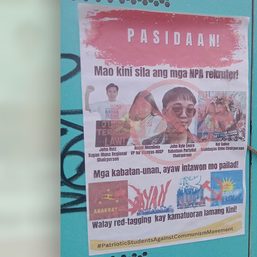
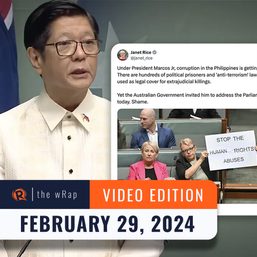
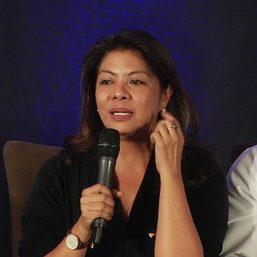
![[OPINION] Jhed and Jonila’s fight for justice](https://www.rappler.com/tachyon/2024/02/TL-jhed-and-jonilla.jpg?resize=257%2C257&crop=411px%2C0px%2C1080px%2C1080px)
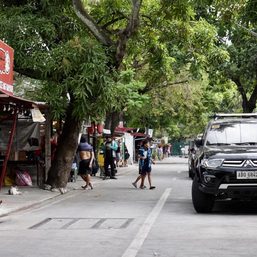
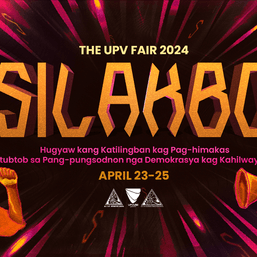
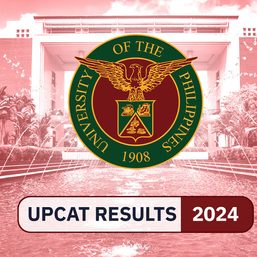
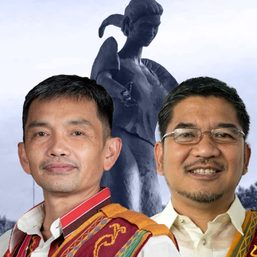
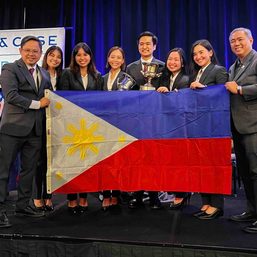
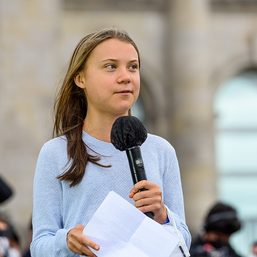
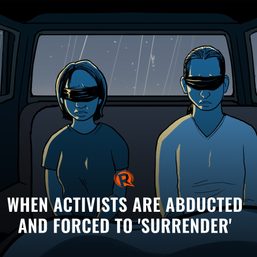
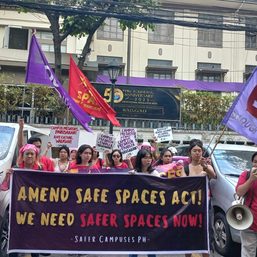
There are no comments yet. Add your comment to start the conversation.